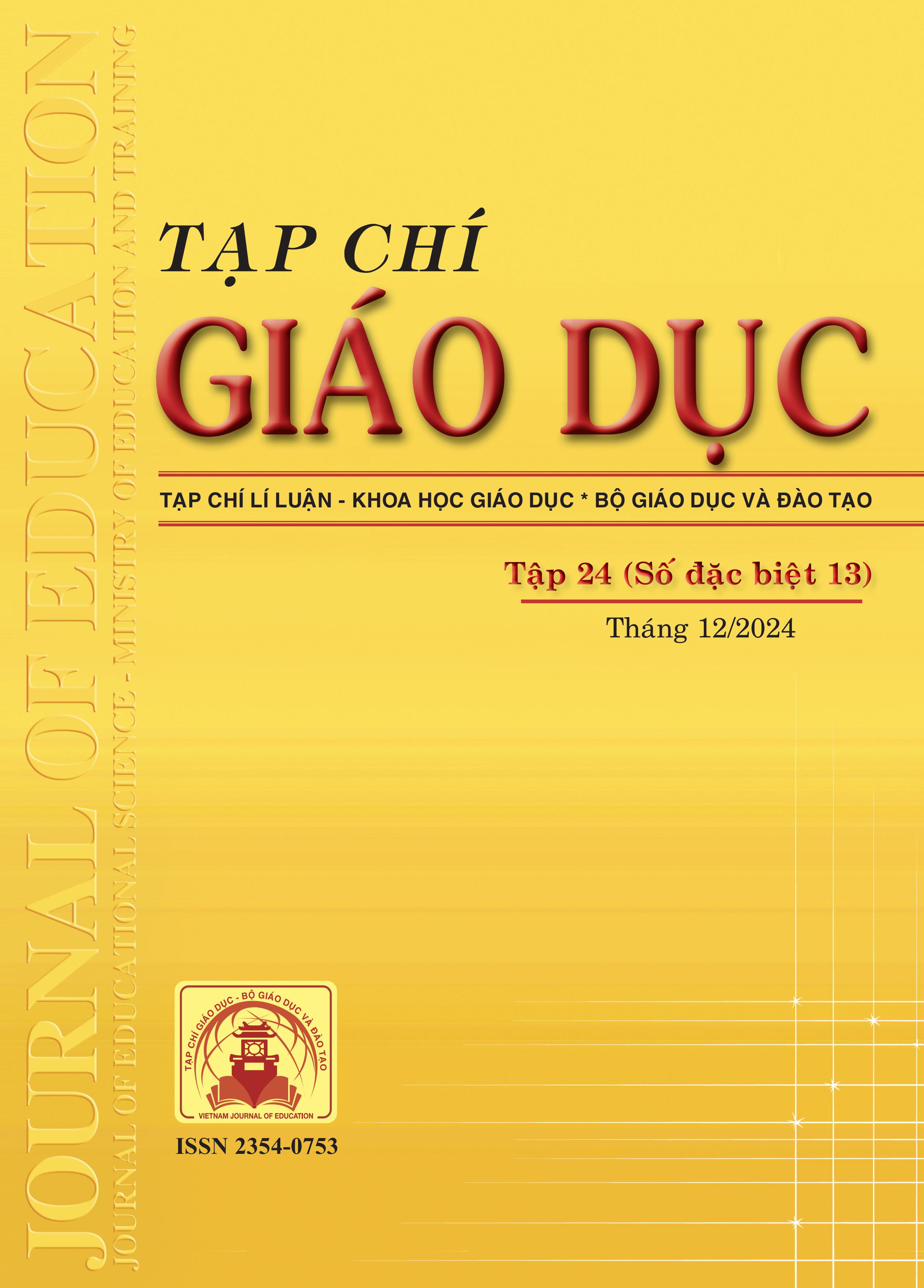Nghiên cứu động lực nội tại và ngoại tại của sinh viên năm thứ hai khi học tiếng Anh như một ngoại ngữ
Tóm tắt
Motivation is a crucial factor in determining the success of English language learning, directly impacting the effort, persistence, and time learners invest in their studies. This study focuses on second-year university students in Vietnam, exploring the role of both intrinsic and extrinsic motivation, with particular attention to the importance of intrinsic motivation in sustaining long-term engagement and achievement. A mixed-methods approach, including in-depth interviews and questionnaires, was employed to assess students’ motivational levels. The findings reveal that while motivation is recognized as important, many students struggle to maintain stable motivation, leading to suboptimal learning outcomes. The study highlights gaps in current motivational strategies and suggests interventions aimed at enhancing motivation, fostering a learning environment that encourages sustained participation, and improving students’ English language performance.
Tài liệu tham khảo
Bandura, A. (1997). Self-Efficacy: The Exercise of Control. W.H. Freeman and Company.
Braun, V., & Clarke, V. (2006). Using thematic analysis in psychology. Qualitative Research in Psychology, 3(2), 77-101. https://doi.org/10.1191/1478088706qp063oa
Bui, H., & Nguyen, T. (2024). Classroom assessment and learning motivation: insights from secondary school EFL classrooms. International Review of Applied Linguistics in Language Teaching, 62(2), 275-300. https://doi.org/ 10.1515/iral-2022-0020
Cohen, L., Manion, L., & Morrison, K. (2011). Research methods in education (7th ed.). Routledge.
Creswell, J. W., & Clark, V. L. P. (2011). Designing and conducting mixed methods research (2nd ed.). SAGE Publications.
Deci, E. L., & Ryan, R. M. (1985). Intrinsic motivation and self-determination in human behavior. Springer Science & Business Media.
Dörnyei, Z. (2001). Motivational Strategies in the Language Classroom. Cambridge University Press.
Dörnyei, Z. (2005). The psychology of the language learner: Individual differences in second language acquisition. Lawrence Erlbaum Associates.
Ellis, R. (2015). Understanding second language acquisition (2nd ed.). Oxford University Press.
Field, A. (2013). Discovering statistics using IBM SPSS statistics (4th ed.). SAGE Publications.
Gardner, R. C. (2010). Motivation and second language acquisition: The socio-educational model. Peter Lang.
Gardner, R. C., & Lambert, W. E. (1972). Attitudes and Motivation in Second Language Learning. Newbury House.
Gee, J. P. (2003). What Video Games Have to Teach Us About Learning and Literacy. Palgrave Macmillan.
Hoàng Văn Vân (2007). Nhu cầu và động cơ học tiếng Anh của sinh viên năm thứ nhất, Đại học Quốc gia Hà Nội. Tạp chí Khoa học: Ngoại ngữ, Đại học Quốc gia Hà Nội, 23, 125-137.
Hoang, T. Q. (2021). Exploring Vietnamese first-year English-major students’ motivation: A longitudinal, mixed-methods investigation. Edith Cowan University.
Krashen, S. D. (1982). Principles and Practice in Second Language Acquisition. Pergamon Press.
Locke, E. A., & Latham, G. P. (1990). A Theory of Goal Setting & Task Performance. Prentice Hall.
Noels, K. A., Pelletier, L. G., Clément, R., & Vallerand, R. J. (2001). Why are you learning a second language? Motivational orientations and self-determination theory. Language Learning, 51(1), 57-85.
Patall, E. A., Cooper, H., & Robinson, J. C. (2008). The effects of choice on intrinsic motivation and related outcomes: A meta-analysis of research findings. Psychological Bulletin, 134(2), 270-300.
Patton, M. Q. (2015). Qualitative research & evaluation methods (4th ed.). SAGE Publications.
Prensky, M. (2001). Digital Game-Based Learning. McGraw-Hill.
Reeve, J. (2009). Why teachers adopt a controlling motivating style toward students and how they can become more autonomy supportive. Educational Psychologist, 44(3), 159-175.
Ryan, R. M., & Deci, E. L. (2000). Intrinsic and extrinsic motivations: Classic definitions and new directions. Contemporary Educational Psychology, 25(1), 54-67. https://doi.org/10.1006/ceps.1999.1020
Ushioda, E. (2013). Motivation and ELT: Looking ahead to the future. In Dörnyei, Z. (Ed.), The Routledge handbook of second language acquisition (pp. 523-535). Routledge.
Vallerand, R. J., Pelletier, L. G., Blais, M. R., Brière, N. M., Senécal, C., & Vallières, É. F. (1992). The academic motivation scale: A measure of intrinsic, extrinsic, and amotivation in education. Educational and Psychological Measurement, 52(4), 1003-1017. https://doi.org/10.1177/0013164492052004025
Vygotsky, L. S. (1978). Mind in Society: The Development of Higher Psychological Processes. Harvard University Press.
Đã Xuất bản
Cách trích dẫn
Số
Chuyên mục
Giấy phép

Tác phẩm này được cấp phép theo Ghi nhận tác giả của Creative Commons Giấy phép quốc tế 4.0 .












